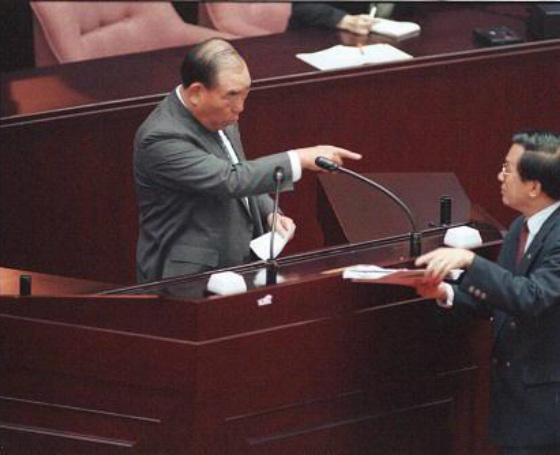Nevertheless, the legislature has steadily accumulated authority at the expense of executive ministries over the last two decades. The ability of opposition party legislators to make life tough for executive branch officials became especially apparent in the later years of the Chen Shui-bian administration, when a pan-Blue (KMT-PFP) alliance held a relatively unified majority of the seats in the LY. Legislative committee inquisitions of ministers were common, key bureaus had budgets cut or frozen for transparently partisan reasons, and much of the government's proposed legislation (with key exceptions) was blocked.
At the time, the standoff between the two branches appeared due almost entirely to the intensely partisan atmosphere that prevailed from 2004-2008. Thus, when Ma Ying-jeou won the 2008 election and the KMT won over 3/4 of the seats in the LY, most observers expected executive-legislative relations to become much more cordial and cooperative again. And for Ma's first term, they seemed to be improved, although even then there were complaints about LY "inefficiency" at passing high-priority legislation.
But legislative independence has reemerged with a vengeance in Ma's second term, even though the KMT remains the majority party there. What is so striking about the events of the last year and more is that even in a period of "unified" party control of both branches, the LY has prevented a quick passage of the president's top policy priority--the CSSTA--and may have killed it for good. That is not an outcome that I would have predicted in 2012, when Ma was re-elected.
From a systemic perspective, what's potentially more troubling is that the current situation is about the best a governing party in Taiwan could ever hope for: the KMT controls the presidency and a majority in the legislature, and the president is the chairman of the party. The unity of purpose across the branches should be highest in this scenario. If a president can't get his agenda approved by the legislature under these circumstances, when can he?

 RSS Feed
RSS Feed
